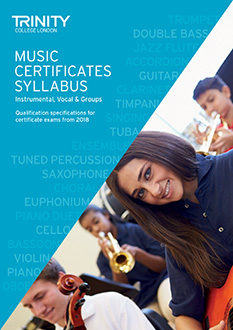Trinity’s Clarinet certificate exams offer an alternative to graded exams.
- Create your own mini-recital
- Available as a face-to-face exam
- Gain marks for programme planning, programme notes and stagecraft
- Receive precise and specific feedback to inform your continued musical development
- Prepare for Trinity’s Performance diplomas, which follow the same format as certificate exams
- There is no technical work and there are no supporting tests
Our music certificate exams are delivered as face-to-face exams only, open to all candidates, with no age restrictions or other limitations. There is no requirement to have passed lower levels, theory exams or other qualifications.
Choose from three levels of assessment representing key stages of musical development.
| Certificate level | Equivalent grade level |
| Foundation | Grade 3 |
| Intermediate | Grade 5 |
| Advanced | Grade 8 |
Works written originally for Clarinet in A may be played on Clarinet in Bb and the accompaniment transposed accordingly. You may also offer own-choice pieces on Eb clarinet/bass clarinet.
For full details (including what you can play, and how long your recital should be), please see the syllabus and repertoire lists.
Clarinet repertoire listsFurther information
Full details (including our procedures, syllabus requirements, what to expect, and what to bring with you) can be found in our Information & Regulations.
Exam report forms are released typically within 1-2 weeks, enabling candidates to benefit from the detailed feedback whilst the exam experience is still recent. Certificates usually follow 4 weeks later. Occasionally, we may not be able to release the exam result straight away. Further details about this can be found on our music syllabus Infringements page. For any other questions, please see our music exam help pages.
Information & Regulations Music syllabus infringements Music exam help